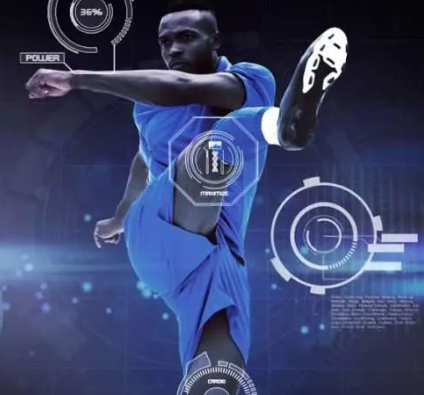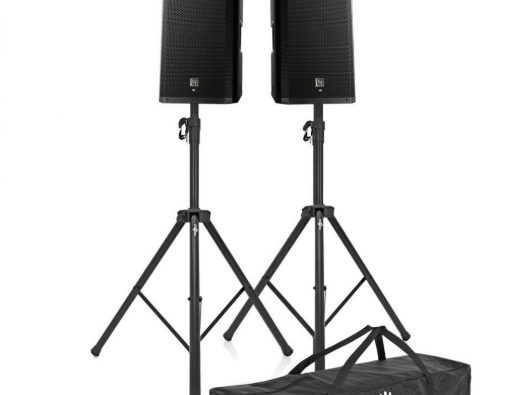
In today’s digital age, business laptop security has become a top priority for companies relying on laptops for communication, data management, and day-to-day operations. As businesses increasingly depend on these devices, the associated security risks also rise. Cybercriminals exploit vulnerabilities through malware, phishing, and unauthorized access, putting sensitive business data in jeopardy. A single security breach can result in financial losses, operational disruptions, and damage to a company’s reputation. To safeguard their devices, networks, and data, businesses must take proactive steps to ensure robust security measures are in place.
Why Is Business Laptop Security Important?
Laptop security encompasses a variety of practices and technologies that work together to protect against unauthorized access, cyberattacks, and data breaches. These security measures include both physical safeguards and digital defenses, all designed to keep sensitive business data secure and maintain the integrity of operations.
The Risks of Inadequate Laptop Security
- Data Breaches: Unauthorized access to sensitive business information can lead to potential misuse, exposing critical data.
- Ransomware Attacks: Malicious software that encrypts business data and demands payment for decryption can halt operations and cause severe financial damage.
- Unauthorized Access: Weak security protocols may allow unauthorized users to access business systems, compromising sensitive information.
- Malware Infections: Malware can infiltrate systems, resulting in data loss, slowdowns, and operational disruptions.
Common Cybersecurity Threats Targeting Business Laptops
To effectively prevent attacks, it’s essential to understand the common security threats targeting business laptops.
- Malware and Ransomware
Malware refers to malicious software designed to damage or exploit devices and networks. Ransomware, a type of malware, encrypts a victim’s data and demands a ransom for its release. These attacks can bring business operations to a standstill and lead to significant financial losses. - Phishing
Phishing involves fraudulent attempts to acquire sensitive information by impersonating trustworthy entities in electronic communications. Employees might unknowingly click on malicious links in seemingly legitimate emails, which can lead to data theft or malware installation. - Weak Passwords and Unauthorized Access
Weak or easily guessable passwords make it easier for hackers to infiltrate systems. Without strong authentication protocols, cybercriminals can access sensitive information, leading to data breaches and other security risks. - Public Wi-Fi Vulnerabilities
Public Wi-Fi networks are often unsecured, making it easy for hackers to intercept data transmitted over these networks. Using public Wi-Fi for business operations increases the risk of exposing sensitive information.
Best Practices for Business Laptop Security
Adopting the following best practices can significantly reduce security risks and protect business laptops from potential cyber threats.
- Enforce Strong Password Policies
Require employees to use complex passwords combining numbers, letters, and special characters. Implement multi-factor authentication (MFA) to add an additional layer of protection, ensuring that unauthorized access is prevented even if passwords are compromised. - Keep Software Up-to-Date
Regular software updates are crucial for fixing security vulnerabilities that could be exploited by cybercriminals. Automate updates wherever possible to ensure consistency and security across all devices. - Install Firewalls and Endpoint Security Solutions
Deploy firewalls to monitor and filter network traffic based on security rules. Implement endpoint security solutions to protect devices from threats, ensuring all laptops are covered. - Train Employees on Security Awareness
Conduct regular training sessions to help employees recognize and respond to potential security threats, such as phishing attempts. An educated workforce is a vital defense against cyberattacks.
Top Security Tools for Business Laptops
Equipping laptops with the right security tools is essential for ensuring data protection and operational stability.
- Antivirus Software
Some of the best antivirus programs for business laptops include Norton Business Security, Bitdefender GravityZone, and McAfee Endpoint Protection. These tools offer comprehensive protection against a range of cyber threats, including malware and ransomware. - Laptop Encryption
Encryption tools like BitLocker (Windows), FileVault (Mac), and VeraCrypt (cross-platform) ensure that business data is protected, even if laptops are lost or stolen. Full-disk encryption prevents unauthorized users from accessing sensitive information. - Endpoint Security Solutions
Solutions such as CrowdStrike Falcon, Symantec Endpoint Protection, and Kaspersky Endpoint Security offer multi-layered protection, including antivirus, firewall, and threat intelligence features, ensuring comprehensive security for business laptops.
Preventing Data Breaches on Company Laptops
Data breaches are one of the most damaging security incidents for businesses. To prevent them, implement proactive measures to safeguard sensitive data stored on laptops.
- Conduct Regular Risk Assessments
Evaluate your organization’s IT infrastructure regularly to identify potential vulnerabilities. This proactive approach allows you to address weaknesses before they can be exploited. - Implement Data Encryption
Encrypt sensitive information to protect it, even if unauthorized individuals gain access to the laptop. Full-disk encryption tools safeguard all data on the device. - Establish Clear Data Handling Policies
Develop and enforce policies for how sensitive data should be stored, transmitted, and deleted. This ensures consistency in data security practices across the organization. - Control and Monitor Data Access
Use access controls to restrict who can access sensitive information. Identity and access management (IAM) solutions can help monitor employee activity and revoke access when necessary. - Regularly Update Security Protocols
Stay informed about emerging threats and ensure your security protocols are updated regularly to address new vulnerabilities and comply with industry standards.
Looking Ahead: Future Trends in Laptop Security
As technology continues to evolve, so do the methods of securing business laptops. Some upcoming trends include:
- AI Integration: AI-powered features help detect anomalies, optimize performance, and enhance security by identifying suspicious activities.
- Cloud-Based Security: Centralized control and real-time updates make cloud-based security solutions ideal for businesses with remote teams and distributed workforces.
- Biometric Authentication: Fingerprint and facial recognition technologies offer stronger access control and improve user convenience.
- Quantum-Resistant Encryption: As quantum computing advances, businesses will need encryption methods that can withstand its powerful decryption capabilities.
- 5G Connectivity: Faster, more reliable internet speeds will improve remote work and online collaboration.
Conclusion
Laptop security is vital for businesses to protect sensitive data and ensure smooth operations. Implementing strong security measures, such as multi-factor authentication, regular updates, and endpoint protection, is essential to safeguard against evolving cyber threats. By staying informed about emerging security trends and investing in advanced protection tools, companies can ensure their business laptops remain secure, preserving both operational integrity and long-term success.












